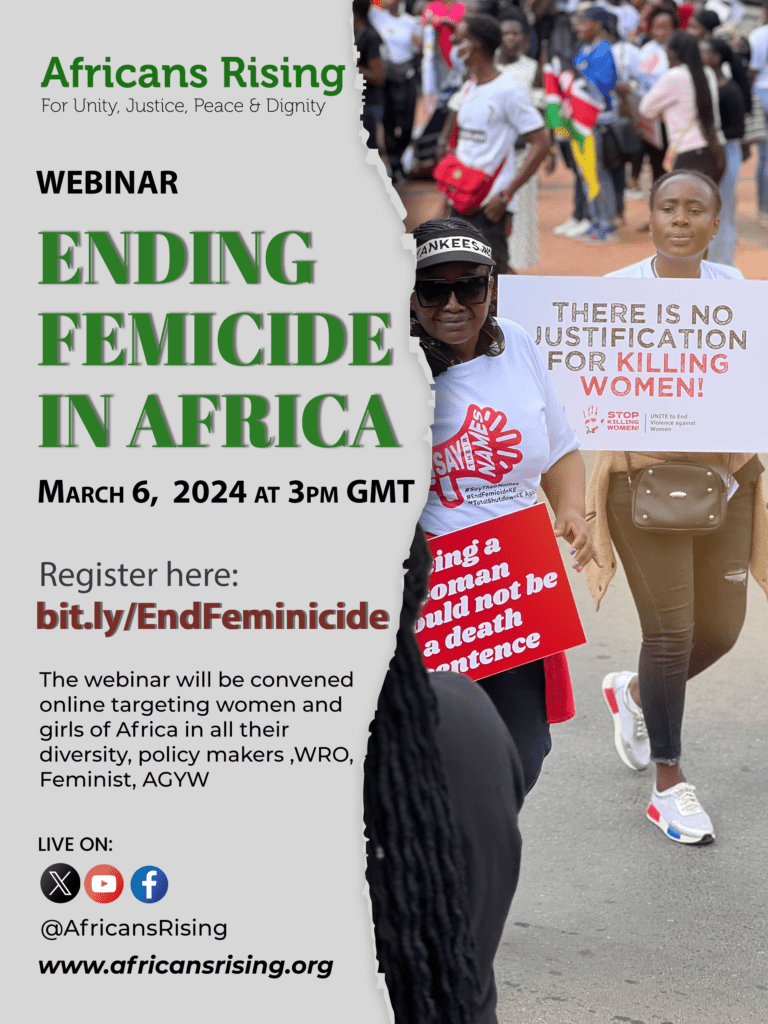Femicide is regarded as “the most brutal and extreme manifestation of violence against women and girls”.
A civil society organisation, DOHS Cares Foundation, on Thursday april 4, 2024, led scores of women of different ages and from different fields in a walk against femicide on the streets of Lagos.
The walk also raised awareness about the negative consequences of femicide in society.
The group moved from the convergence point in Ikeja to the State House of Assembly in Alausa, where they presented a draft bill for consideration to criminalise femicide in the state.
Femicide is the killing of women or girls particularly by men on account of their gender. It is the most brutal and extreme manifestation of violence against women and girls, according to UN Women.
In her remarks, the founder of DOHS, Ololade Ajayi, described femicide as “the intentional killing of women and girls by men, which is characterised by a history of domestic violence and social abuse.”
“Currently, there is nowhere in Lagos State laws on domestic violence that covers femicide,” Mrs Ajayi said.
“Femicide is the highest form of gender-based violence, the most violent form because it results in the murder of women and girls.”
She added that the draft bill with different sections takes cognisance of vulnerable persons, especially dependants left behind by the victim, sanctions for perpetrators, and sections that take care of missing women and girls who might have been victims of femicide.
House of Assembly receives group
The group was received by three members of the Lagos State House of Assembly, Solomon Bonu, Badagry Constituency I; Adebola Shabi, Lagos Mainland Constituency II; and Abiodun Orekoya, Somolu Constituency I.
Addressing the group, Mr Bonu said: “We have listened to you based on what you brought to the House. Protection of women and girls is essential and in Lagos, we don’t joke with that.”
He said while the state is currently reviewing the Protection Against Domestic Violence Law of Lagos State signed into law in 2007, “femicide can be looked into to strengthen the state laws because women and girls are vital to society.”
Mr Bonu reiterated that Lagos does not tolerate domestic violence “and I can count three cases where they have prosecuted most men that have violated this law.”
“We are going to deliver what you brought before the speaker and the rest of the 39 members to debate it,” he added.
Also, Mrs Shabi said the female members would have been perfect to receive the group, but the House is in recess, and the female members are out of the country.
“But be rest assured, the speaker, Mudashiru Obasa, doesn’t joke with anything about women. He will receive it and you will be invited for possible addition or subtraction.”
On his part, Mr Orekoya said: “Our bills go through very thorough processes, we look at the effects before it now goes to the floor for debate.”
He recommended collaboration between the group and the House committee chairman on women’s affairs, Lara Olumegbon, for a prompt intervention.
More on femicide, cases
In reaction, Mrs Ajayi said: “We know that
Lagos State is very proactive regarding cases of women and that is why we would love the development to happen first here, and we are going to the National Assembly too for the same cause.”
Speaking further on femicide, Mrs Ajayi said it is a distinct form of Gender Based Violence (GBV), motivated by hatred, contempt, pleasure or a sense of ownership of women and a misogynistic killing of women by men.
She said femicide may occur as a result of stereotypes of gender roles and unequal power relations, with harmful impacts including psychological and emotional damage to families and society as a whole.
Citing cases of femicide, Mrs Ajayi said that the victims had not gotten justice to date, forcing her to shoulder the burden of supporting their dependents whose lives were forever marred by the incident.
“Many femicide cases are usually ruled as yahoo or ritualistic killings and in the court of public opinion, with blame thrown at the feet of the victims for being greedy or not discerning enough. This makes it easy for perpetrators to escape appropriately,” she noted.
Some documented victims of femicide in Nigeria, according to her, include Obiageli Anajekwu, Augusta Osedion, Damian Okoligwe, Ogochukwu Anene, Ndubuisi, Nana Fadimatu, Esther Aja, Ovye Yakubu, Evelyn Alifiya, Itunu Chigozie, Mercy Samuel, Osinachi Nwachukwu, Bimbo Ogbonna amongst others.


